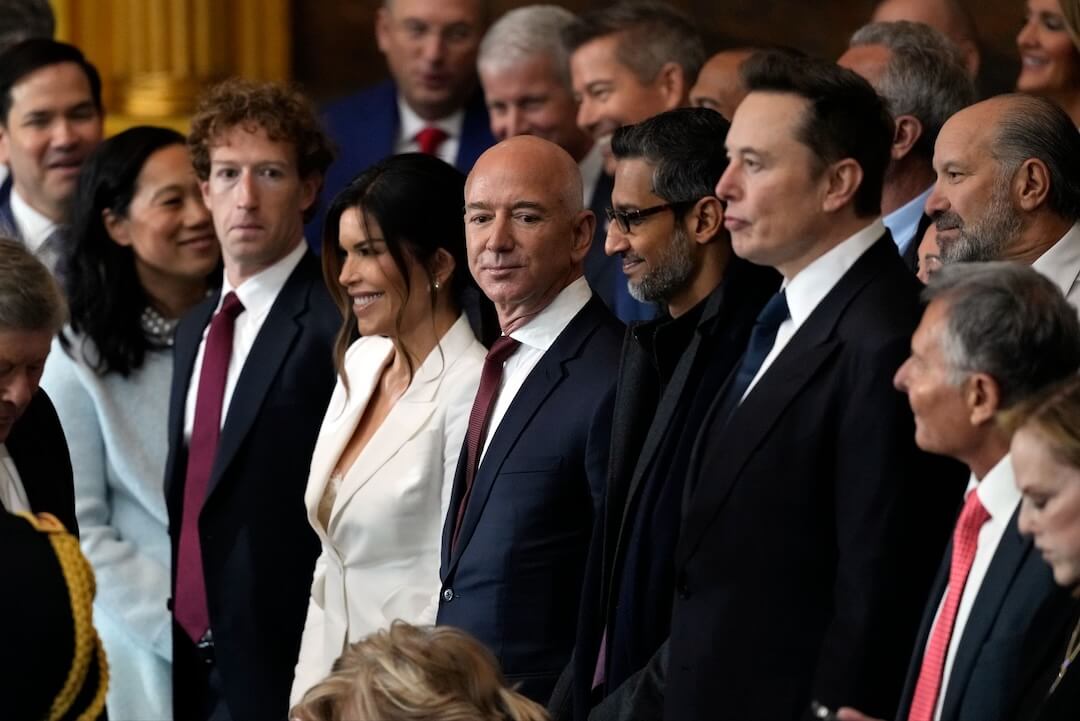The title of Stanley Kubrick’s last movie “Eyes Wide Shut” popped into my head when I began pondering an interesting question recently posed on Slashdot.org.
The question addressed the issue of online journalism ethics when it comes to blogs. It asked: “(D)oes the nature of the World Wide Web in fact give sites like Wonkette, Drudge, or even Slashdot a free pass on accuracy if it means the difference between getting the scoop or not?”
The “free pass” portion of that question brought an image to my mind of bloggers writing with their “eyes wide shut” unable, or unwilling, to look at the ethical implications and consequences of abandoning accuracy in their work. Like the Kubrick movie, the query raises issues of integrity and trust — and what happens when they become questioned.
Gillmor: “…We’ll have to learn to parse what we read online — to develop a hierarchy of trust.”A New York Times profile of Ana Marie Cox, a Washington D.C. gossip blogger, who writes the “Wonkette!” blog prompted the question. And a provocative quote in the article attributed to Nick Denton, the site’s owner, emerged as the flame to which bloggers and ethics oriented journalists could be drawn.
Here’s the Denton quote: “I think it’s implicit in the way that a website is produced that our standards of accuracy are lower. Besides, immediacy is more important than accuracy, and humor is more important than accuracy.”
That quote (subsequently challenged by Denton on his weblog) drew different responses from bloggers I asked to give me their feedback about the quote. Dan Gilmor, who writes an e-journal from Silicon Valley, stressed the importance of trust.
“I admire Nick,” Gilmor wrote in an email to me. “But I don’t agree with Nick on this issue. I think accuracy — or at least an explicit acknowledgement when a posting is only a rumor or otherwise poorly verified — is more important than timeliness. Just as we tend to take some print and broadcast journalism with a large grain of salt, we’ll have to learn to parse what we read online — to develop a hierarchy of trust.”
Dan Weintraub, a columnist at the Sacramento Bee and a political blogger for the paper, wrote me that standards can be different, or the same, as those of the blogger’s employer, if they have one. And he also sees no reason why bloggers can’t adhere to the same standards as mainstream metropolitan newspapers.
“But I also think it’s ok for a blog, newspaper or otherwise, to stray from that,” he continued in his email, “I wouldn’t say that humor or scoops are more important than accuracy. But there is nothing wrong with informed speculation in a blog, as long as your readers know that’s what it is. Ultimately the readers will be the judges of whether you are credible or not. If they don’t like your track record they will go elsewhere.”
In an e-mail message, Jeff Bates of Slashdot wrote:
…I think there’s a certain degree of truth to the posting, I think that it’s a qualified truth. Yes, speed is prized — but because of the elasticity of the medium, it also means that if there’s even a small change, we post it, we update it — and we admit mistakes. That’s a far cry from having the mistakes corrected in the next day’s edition, in small print, in spots no one ever reads.In his critique of The Times article, Denton acknowledges that blogs sometimes botch reports. But he argues they also update and post corrections prominently. And he adds that blogs don’t “pose, pompously, as guardians of journalistic purity.”
…If something appears to be ludicrous, or out of whack, we do take efforts to check it out. But one of the other advantages Slashdot has is that even if we miss it, the readers catch it. Thousands of eyes make finding mistakes very easy.
I think Denton makes a valid point when it comes to the lack of humility, and the hubris, displayed by some news organizations, regardless of their platform. Too often, we journalists believe we hold the only keys to righteousness. We hold up our rules with pride, and then offer excuses when we skirt them for competitive reasons.
And there’s nothing new about the question posed on Slashdot.
The examination of the premise that we inhabit a brave, brand new world where old rules don’t apply has been written about, and challenged, by many people, including me. I noted in one of my earlier columns that “new tools need not cause us to discard the values we hold.” And in another one, I outlined the financial temptations to our integrity as a news product because of the new capabilities of the web.
The desire to envision new ways for a new world re-emerges with each dawn — regardless of the world to which we’re referring. Remember the emergence of “new economy” of the 1990s. It ushered in new companies, and with it the belief that the old economic rules no longer mattered. The industrial titans that once dominated the world of business became viewed as lumbering, earth-bound dinosaurs. We began doting on the dot-com companies, which had escaped the gravitational pull of economic history.
We know what happened.
So let’s approach this new communications frontier with hands neither tied solely to our past, nor naively open to anything that seems fresh. Instead, we should remember that we will be judged by the kind of character we display in the work we do. The more transparent we are about who we are and what we do, the easier we make it for our news consumers to make up their own minds about the value we offer.
We trifle with trust at our peril. So we need to read, and write, blogs with our eyes wide open.





